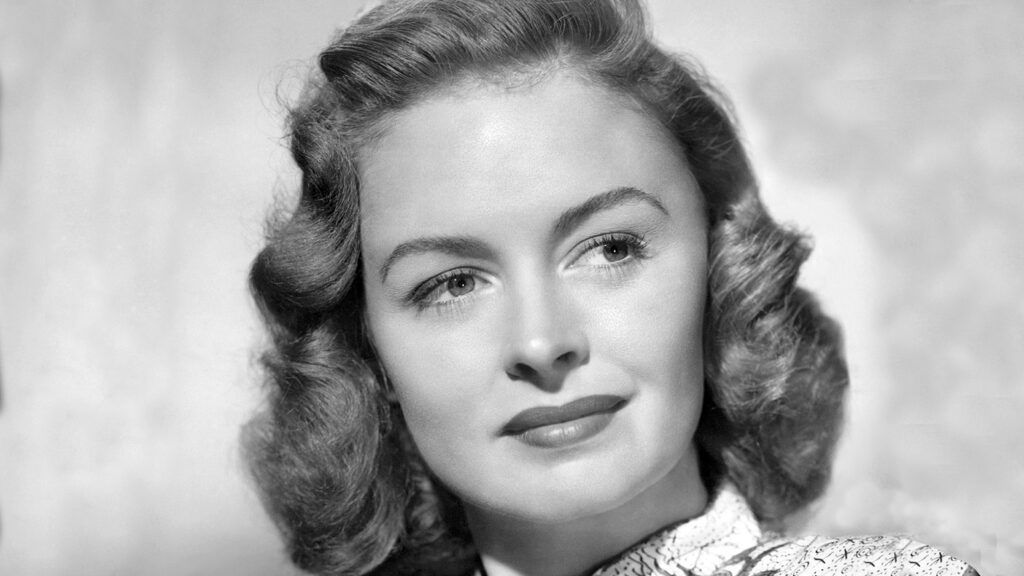Not long ago my younger son Timothy—he’s 12 now—came in to me with his homework assignment. Timmie had to read and try to understand all the stories on the front page of our newspaper.
“Oh dear!” I gasped out loud.
“What’s the matter, Mom?” Timmie asked, surprised, and I hastened to cover up the momentary despair I felt. There, splashed baldly across the page, were frightening headlines about many of the things that are wrong with our world today.
There were reports about a hydrogen bomb explosion, about a murder, a car crash, a divorce. Oh Timmie, I thought to myself, must you learn about all of these things? What a world to bring you up in!
Timmie had provided that moment of pause that must come often to parents who try to be responsible and knowledgeable citizens and yet, who want to give their atom-age children a sense of security.
It is easy to believe that our children don’t think much beyond baseball or when-they’ll-be-allowed-to-wear-lipstick or what’s-for-dessert? Actually, however, children are but small adults; they, too, worry about the terrors of atomic war; they, too, can see the dark shadows with which our days are edged.
Again and again my husband Tony Owen and I have discussed this problem. We have not wanted to keep the realities of the world from our two boys and two girls, but for a long time we have had a sense of failure about finding the formula for what we call the courage to face today.
Then, recently, Penny Jane, our older daughter, now 15, asked a question that eventually gave us our answers.
We were talking about the world today, when Penny Jane said, “Mom, what did you have to worry about in your day?”
Children have a way of making you feel not old, but ancient, as though your youth and usefulness were centuries behind. I had to laugh at her question. “Well,” I said, and then my mind began to go back and all of a sudden it did begin to seem like a long time since my girlhood.
Sitting there in the comfort of our lovely Beverly Hills home I began to talk about how I, too, was one of four children and how we lived on a farm near Denison, Iowa.
READ MORE: ANDY GRIFFITH ON GOD’S GRACE
My family on both sides had pioneered in that state before I was born. As children all of us had chores to perform. I could and did milk the cows and drive the tractor, bring in water from the pump and coal and wood for the stove; to this day I can bake my own bread.
The most obvious difference between my childhood and our children’s is not that I lived on a farm, but that back in Iowa during the terrible pressure of the Depression years we were quite poor.
I doubt that any people in America suffered more than some of the Midwestern farmers of the early ’30s. These people, our friends and neighbors, were struck with a series of Job-like afflictions.
Times were bad everywhere, of course, and there was little money, but on top of this came the drought that withered crops and parched the earth only to be followed by the wind that swept the dry topsoil into great, dark choking dust storms. Family after family loaded their belongings into rickety automobiles and left…
Poverty, need, these are awful things to have happen to you, but worse, I think, to watch in others. I remember the sounds of our animals crying for food and water.
I remember how a little girl from a nearby farm came to say that she would not be playing with me any more because her family was going away. She didn’t know where they were going; they were simply leaving, giving up.
When I think back to those harsh days, I think mainly in terms of my parents, and the anguish I felt inside as I saw them up early and late to bed, day after day, laboring hard with no returns.
As children we had few toys and I always yearned for a bicycle which I never got, but I can’t recall these things as having been very important to me when I knew so well the inescapable realities of our situation. We might have left the farm, too, if it had not been for Dad.
His name is William Mullenger and he is a stubborn man. He would not give up. One by one we had to sell our livestock. One by one our neighbors deserted their farms and each time my father would say to us calmly but with undeniable vigor shored up by his faith:
“It will not always be this way.”
READ MORE: DONNA DOUGLAS ON GIVING HER BEST
I used to wonder how Dad could be so sure when so many others were not. And then, on Sundays, I’d get a glimpse of the answer. On Sundays Dad would pile Mom and the four kids into that old car we drove for 15 years and we’d rattle to the Methodist church in Denison.
You could get strength just from sitting next to Dad in church. When the minister would read from the Bible, Dad would lean forward a little, as though this especially he had to hear.
Watching his face, we children could see that the ancient words were food to his spirit, strength to get him through one more week.
Our minister used to read a lot from those Books of the Bible that rang with hope. Only recently I searched through the Bible to see if I couldn’t find some of the familiar passages and there, in Isaiah, I came across some verses which brought back the whole experience of parched farms and poverty as clearly as though I were there again, sitting in the pew next to Dad.
Just listen to these words from Isaiah 41:17-18:
When the poor and needy seek water, and there is none, and their tongue faileth for thirst, I the Lord will hear them… I will make the wilderness a pool of water, and the dry land springs of water.
These are the things which my father heard and believed.
Dad was a family man, a real family man. “If there is family strength,” he used to say, “that old Depression’s not going to get us.” And the Depression did pass and it did not get us.
READ MORE: THE BOOK DICK VAN DYKE LIVES BY
Eventually I graduated from high school and with $60 in my purse I left Denison for Los Angeles where I could live with my aunt and go to college.
When I explained to Penny Jane that we had our worries, too, in the far, far days of my youth, and when later I went delving into the old prophet Isaiah, I was well on the way to discovering how we parents in 1962 can prepare our children to cope with the atomic age.
I came to the root of the matter when I began to think about faith, the faith that our family now was renewing in church on Sundays. In essence it was the same as when our family went to church in Denison: the knowledge that God still lives and rules and can handle our problems whatever they may be–if we let Him.
I do not believe that the world changes as much as we choose to think. In my father’s day there was the Depression; the suffering then was real and affected millions of people. Before my father’s time my forebears in Iowa faced the rigors of nature.
All of our ancestors in distant ages have known plague and destruction in one form or another. Yet, centuries before my children, even centuries before Christ, Isaiah spoke about God’s power extending beyond Israel to all other nations and unto all generations.
In words not surpassed anywhere in the Old Testament, Isaiah spoke of hope and the kingdom of God on earth. And that’s the way it happens: faith and courage are like torches passed from old to young.
Today represents new times, yes, new problems, new fears, but one basic and beautiful thing links us with the past and with the future. That thing is faith, our belief in God and His adequacy.
Dad had that faith when he said about our poverty, “It will not always be this way.” With Him we know that if we fail today, tomorrow offers its triumphs.
For more inspiring stories, subscribe to Guideposts magazine.





